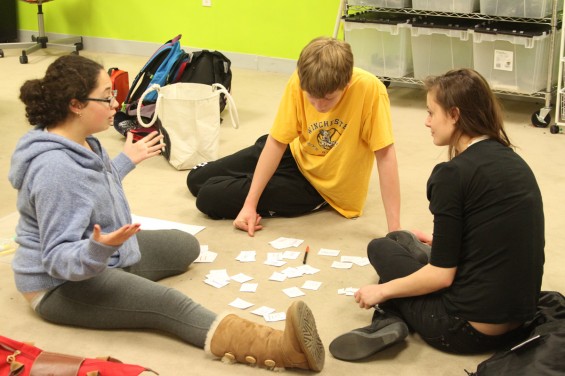
Now, in our last day of design, it's thrilling to watch the final collection of six educational games take shape and begin the next phase of development.
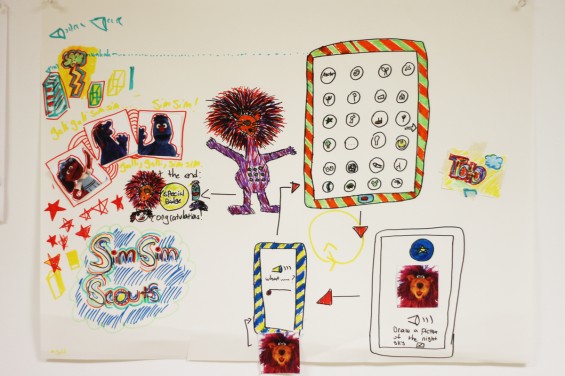
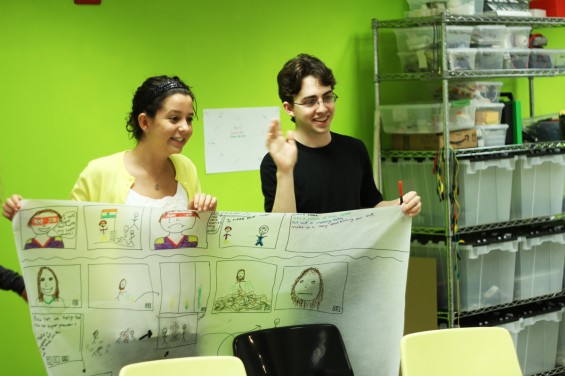
As the studio coaches, the most exciting part of the process has been watching the students shift their thinking over the nearly two weeks to be more open-minded, yet also more in touch with the particular needs of the project. When we started last Monday we worked with the class to understand the context (India) and tools (Android Phones) we would be designing for--the key to the project was to create games for kids in India to play on one phone shared amongst a group. We jumped into our first round of design-brainstorming where students thought of a range of games -- team played snake, digital hide and seek, hot potato phone.
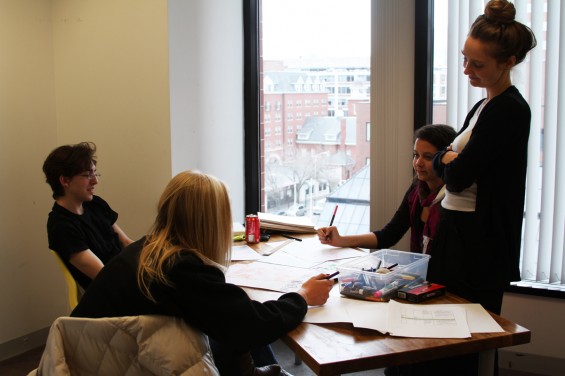
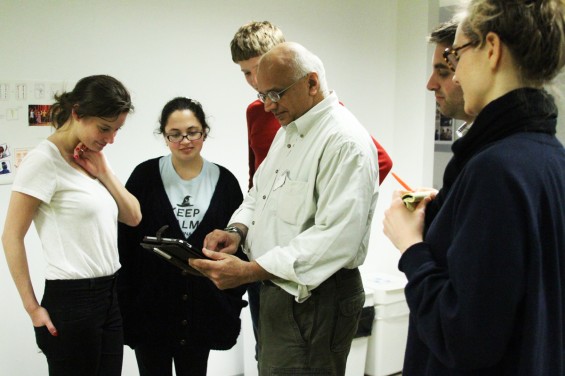
All of the games were centered on the device itself--they were concepts driven by what the phone could and couldn't do, not what the phone could help kids in India to do and learn in their environment. When we stepped back from the technology and conceived of games to reinforce and encourage new lessons independent of technology, a breakthrough happened. The students have designed excellent games that are supported by but not dependent on technology -- and now, another week later we have six exciting games which will soon be going into development.
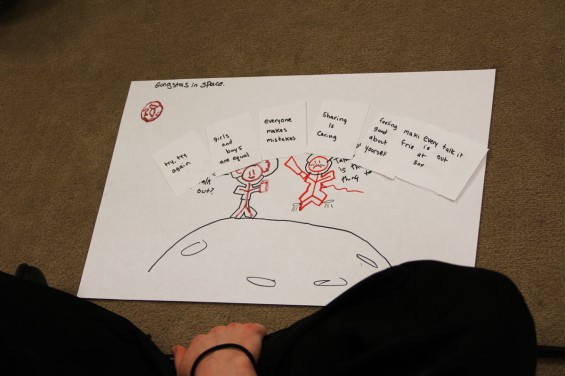

All of the games encourage good habits, good health, and positive social skills--from one game which challenges kids to make up imaginative stories to learn emotional skills, to another that takes kids on a whirlwind dancing tour of India, or a third that engages kids as superhero sidekicks. As the main studio comes to a close,
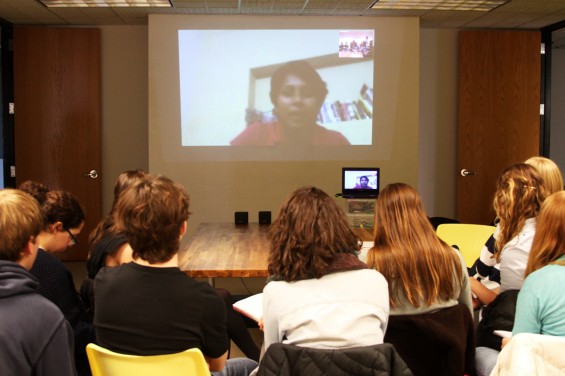
Getting into the cultural context, Indian food for lunch!
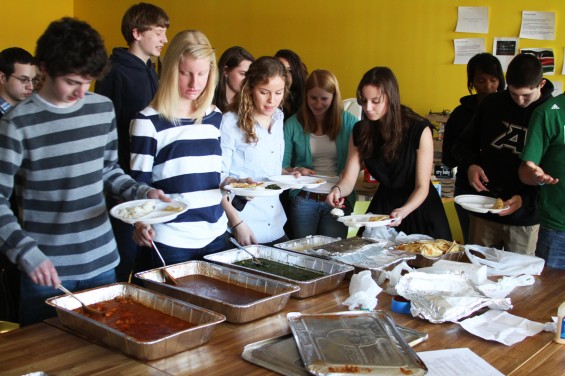
Skype conversation with Tupur Chatterjee of
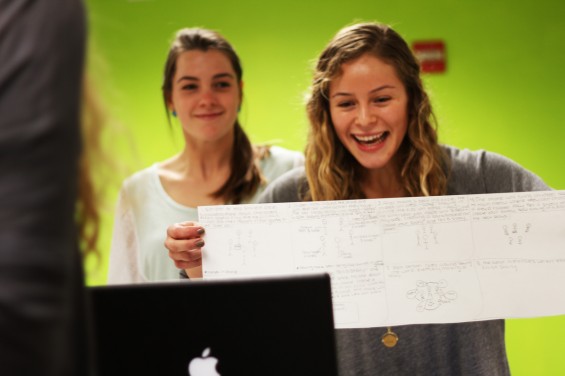
:rotate(0)/p39f1jed4mgd288myquiu5yecweg)